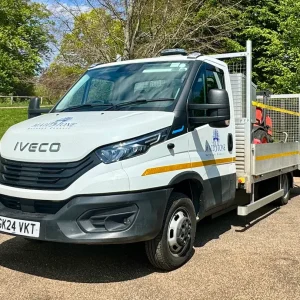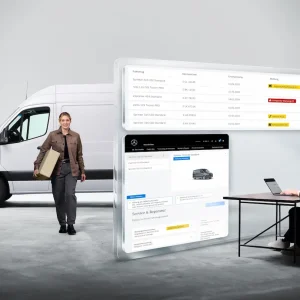Mercedes-Benz has claimed its third generation Sprinter will lead the large van sector into a new era when it comes to market in the first quarter of next year.
The brand said the Sprinter, which debuted in 1995, would leap “from vehicle to integrated system solution” by embracing a raft of innovations covering electric drivetrains, connectivity systems and bespoke loading solutions.
As part of its so called ‘adVANce’ initiative, the manufacturer has developed Pro-connect internet-based fleet management connectivity to improve communication between fleet managers and drivers.
The brand claimed body variants, wheelbases, load height, stowage concepts, interior versatility and infotainment systems could be adapted to myriad individual requirements and said the van would be equally at home on a construction site or operating as a VIP shuttle with a diverse range of ex-factory bodystyles available.
Mercedes also confirmed it would introduce an electric eSprinter in 2019 to follow the eVito medium van launched this November.
“The Sprinter is the flagship of our commercial fleet and defines our understanding of an integrated system solution,” said Volker Mornhinweg, head of Mercedes-Benz-Vans.
“Comprehensive industry-specific know-how, a vehicle that is adaptable to different transport requirements and innovative networking services add up to an all-embracing fully integral product offering.”
Meanwhile, according to the Mercedes-Benz Vans UK Business Barometer – an independent sample of 2,000 van drivers, owners, operators and fleet managers, confusion reigns when it comes to understanding how the Government will roll out its Clean Air Zones (CAZ) in major cities across the UK within two years.
The first five zones in Birmingham, Leeds, Nottingham, Derby and Southampton, are due to be in place by the end of 2019 but Mercedes said one in five of those surveyed have not heard about the proposed Clean Air Zones while 41% feared they could have a negative impact on their business.
The Barometer also found that 78% of van drivers, owners and operators want more clarity on what the charging and emissions criteria of the CAZs will be.





